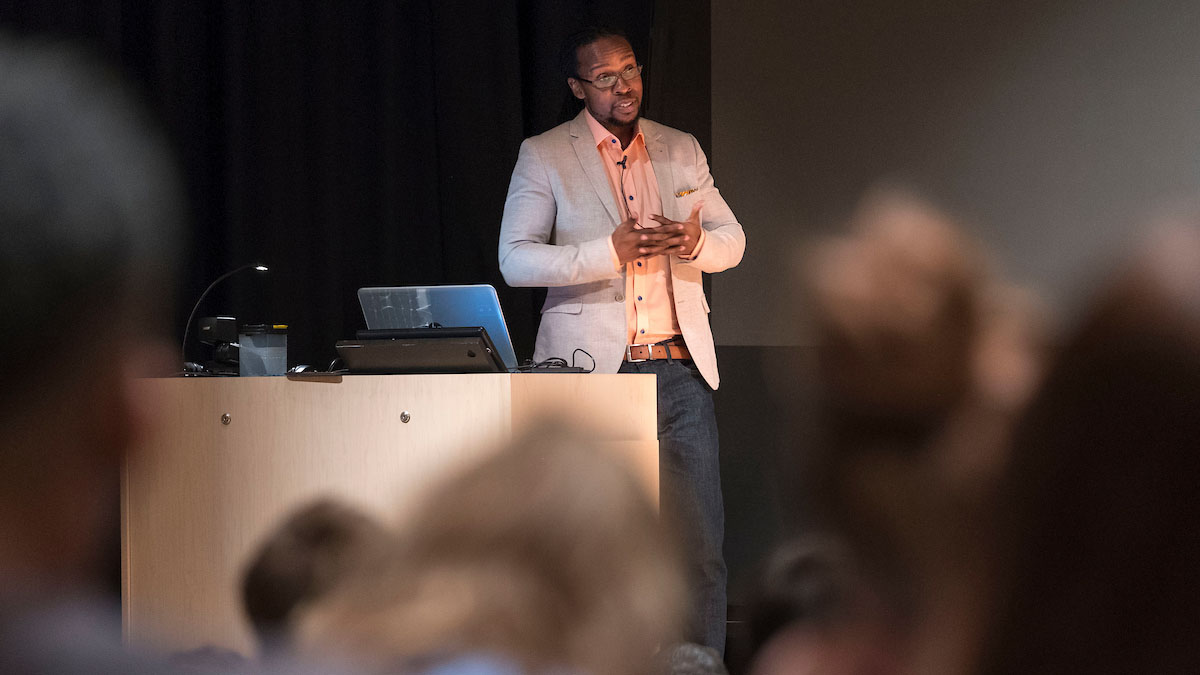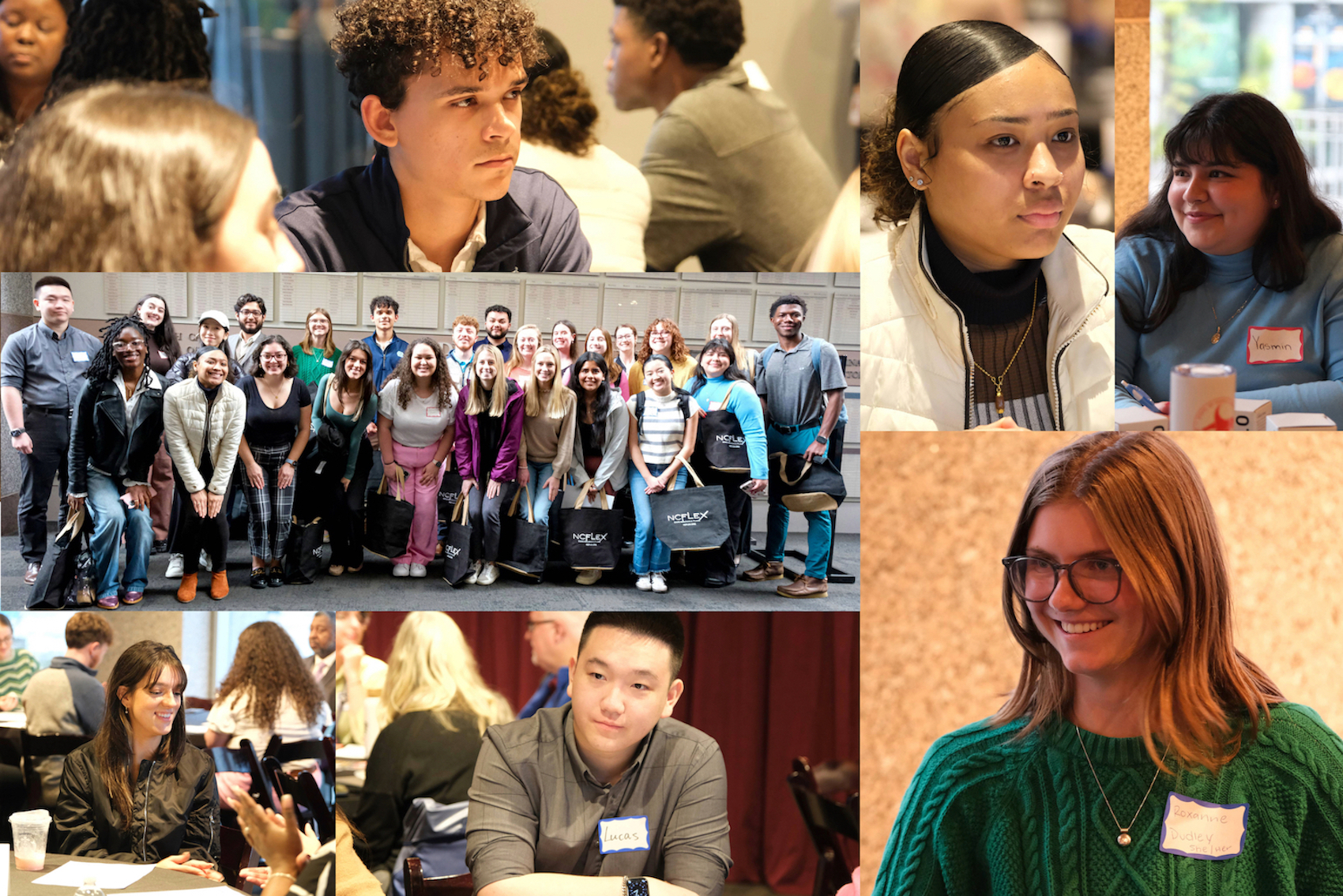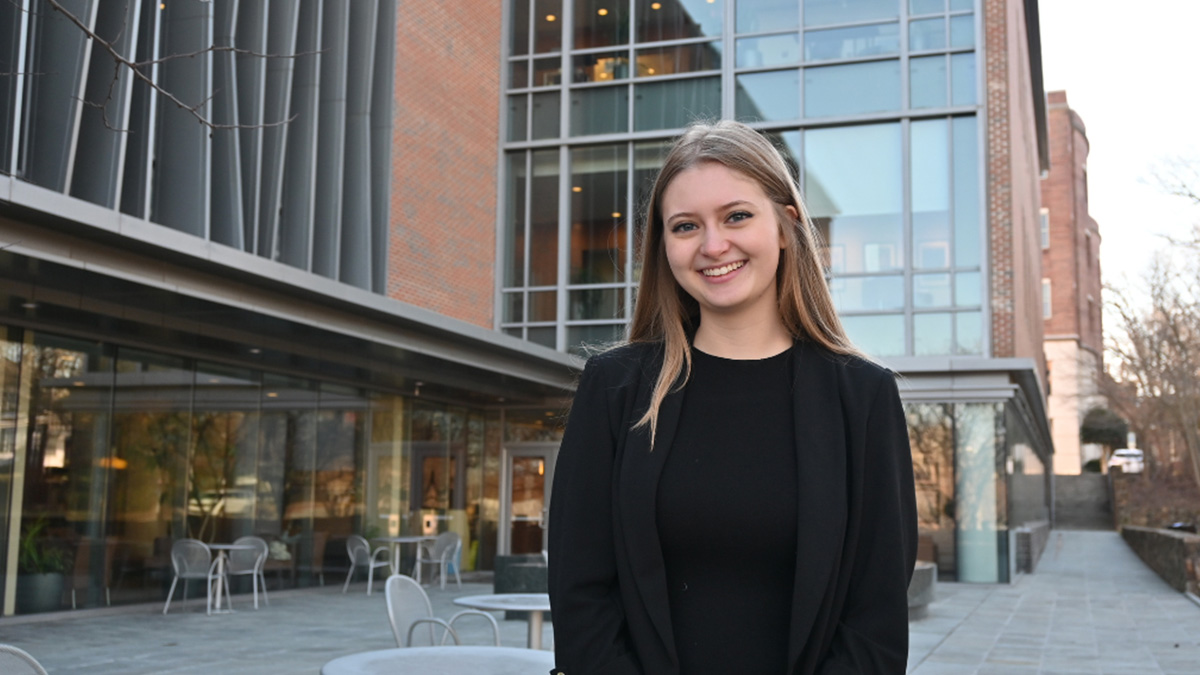Carolina community honors Black History Month
A lecture by historian and author Ibram X. Kendi launched a monthlong celebration of African-American history at UNC-Chapel Hill and across the country.

To understand racism today, the country must confront its history of anti-black ideas, Ibram X. Kendi said during Carolina’s African-American History Month Lecture on Feb. 7 at the Sonja Haynes Stone Center for Black Culture and History.
Kendi, an award-winning author and historian, discussed how past racist policies have perpetuated bigotry in the United States.
“Fundamentally, the racial struggle from its inception to this day has been a power struggle,” he said. “I reject the assumption that racist people are just ignorant and hateful. That’s what we’re taught. But this is about power — who has it and who does not.”
In his lecture, Kendi said that addressing the existing power imbalance will require people with anti-racist ideals to seek out positions of authority and strive for change. Only then, Kendi said, will a post-racial society be within reach.
Kendi’s lecture, organized by the Office for Diversity and Inclusion, is one of several campus events reflecting on African-American heritage and history throughout February.
Lisa Lindsay, chair of the College of Arts & Sciences’ history department, said the annual lecture brings people together from across UNC-Chapel Hill to celebrate and learn from African-American history and achievement.
“African-American culture has permeated the globe – in music, literature and art, style and slang, politics and poetry, from hip hop to the jump shot,” Lindsay said. “Why? I don’t have the whole answer, but part of it must be this: Amidst struggle and inequality, African-American culture offers a vision of freedom and humanity.”
With that spirit in mind, the evening included a musical selection with lyrics encouraging listeners to learn from a dark and difficult past and to move forward into a new day.
Kendi’s lecture echoed that message of hope.
“If we become overwhelmed with hopelessness — if we start believing that racism is permanent — then it compels us not to do anything,” Kendi said. “In order to bring about racial change and to create an anti-racist state or nation or even university, we first have to believe in the possibility of change. And even though I chronicle the ugliest aspects of this nation’s history, I am filled with the belief that we can create a different nation.”




